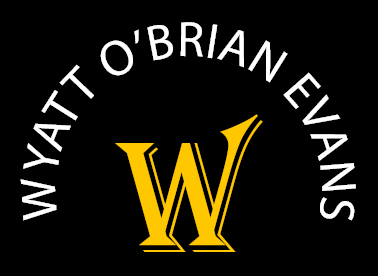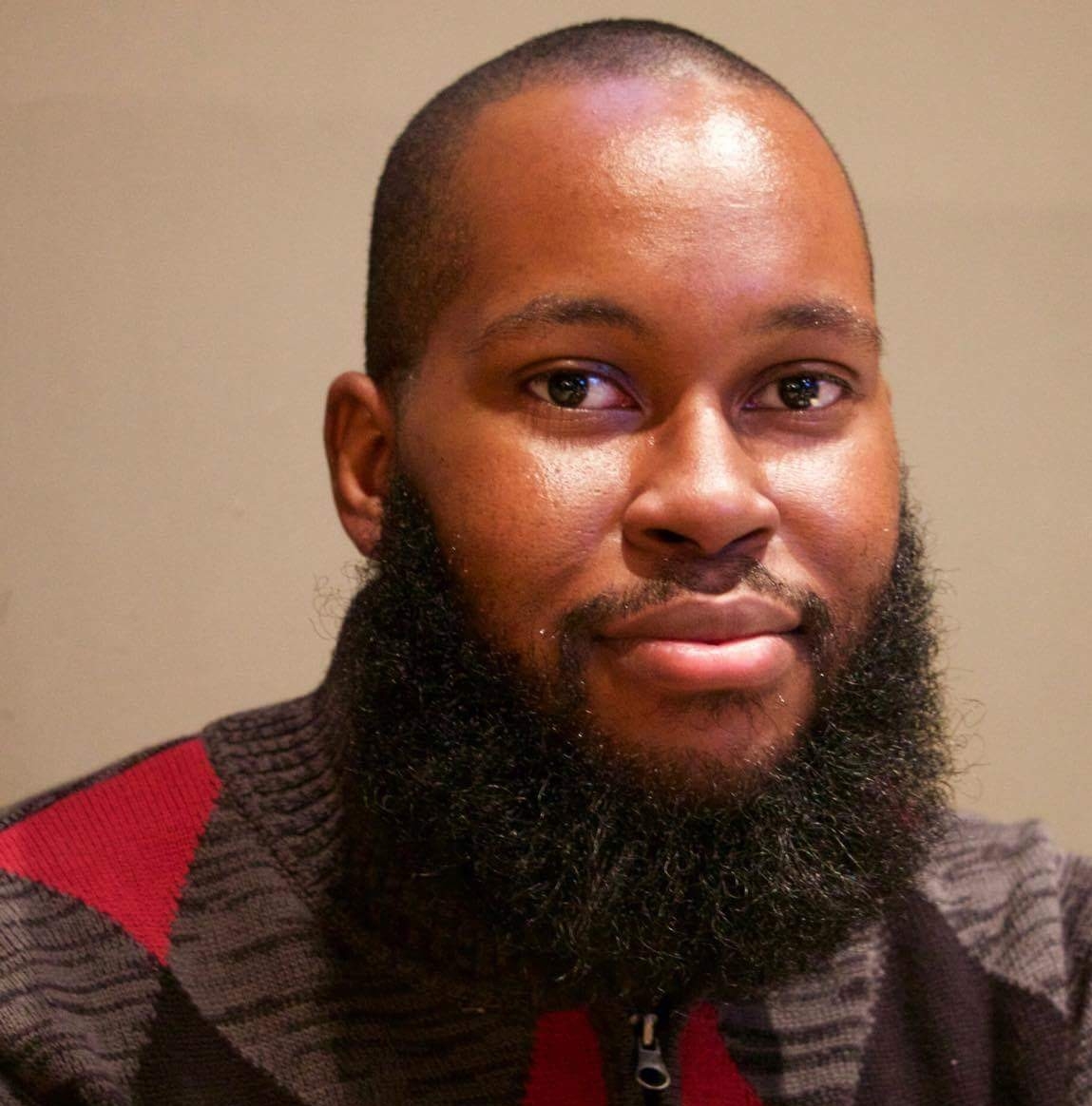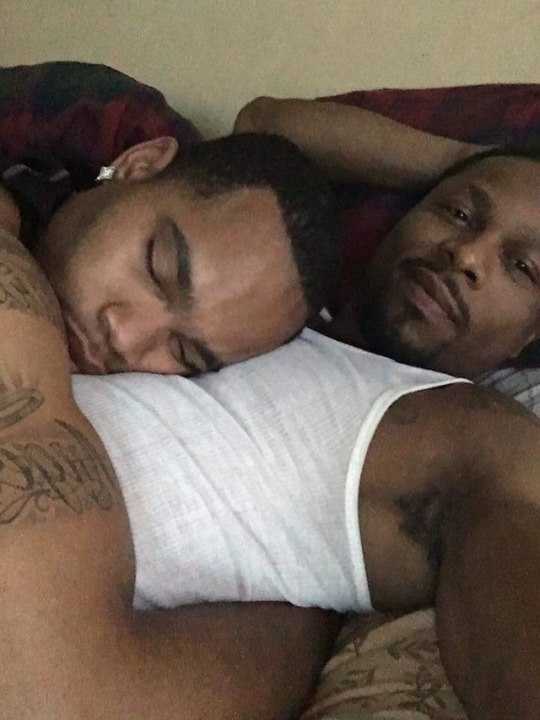“If opportunity doesn’t knock, build a door.”—Milton Berle, iconic comedian/actor.
This is the mantra that James Butler lives by. Mr. Butler is the founder of The Big Boy Project (BBP), a dynamic and cutting edge infotainment site that is specifically designed for larger men—and those who have an affinity for them.
According to Butler, who is 28 years old and openly gay/SGL, The Big Boy Project is “about bears/big boys of color coming together to express our opinions on world news, gay topics, and pop culture news.”
As you’ll soon learn, BBP was born out of Butler’s poignant and at times uneasy journey of self-discovery. Just recently, I had an exclusive sit-down with the engaging and driven founder of this fascinating, growing and evolving enterprise.
EVANS: James, welcome to Wyattevans.com! I appreciate you taking the time.
BUTLER: Certainly! It’s good to be here, Wyatt.
EVANS: Well let’s jump right into things by getting personal. You grew up in Leesburg, Georgia? How far is that from “Hawtlanta” (Atlanta)?
BUTLER: (Smiling.) Leesburg is about three or four hours away from Atlanta; all depends on the traffic. (LOL.)
EVANS: So, what was growing up like in Leesburg?
BUTLER: Growing up in Leesburg was an interesting experience! I had to deal with two types of people: the southern hospitality side and the southern racist side. To make things short, it was a roller coaster ride.
EVANS: James, you’ve stated that you “detested school.” Why?
BUTLER: I was so shy and awkward in high school, which made me an easy target for bullying and ridicule–as well as dealing with teachers who did not want to teach. They just wanted to collect their paychecks.
EVANS: That was unfortunate. James, you’ve also stated, “Being in the South, racism and bullying were also a day-to-day battle.”
BUTLER: Some people in the South are still stuck in that old-school mentality that people of color are beneath them; so at school or work, I had to hear ignorant statements about me and my skin color, which caused me to keep to myself.
EVANS: Exactly why were you bullied? Was it because of your size and/or sexual orientation?
BUTLER: The answer to that question is “D”–all of the above! (He takes a deep breath.) I was a fat, awkward Black boy with acne and sexual identity issues. I was a very easy target.
EVANS: Needless to say, that had to be traumatic. What was the impact of the bullying and racism? How did it affect you emotionally, mentally?
BUTLER: Oh, I hated myself! I believed everything the bullies told me about myself; so much that I often cried when I got home from school. I remember eating lunch in an empty classroom to avoid being picked on, thinking that no one wanted me around. (His eyes acutely expresses those memories.)
EVANS: James, when and how did you come to the realization that you were gay/SGL? How did that impact you?
BUTLER: The 11th grade was the year I fully realized I was gay. It was a confusing time for me. I didn’t have people to talk to about my gay feelings. My parents were not any help; so basically, I had to learn things on my own by doing research online–as well as by physical trial and error. (LOL.)
EVANS: Would you say that this realization–along with the bullying and racism–caused you to become more reclusive?
BUTLER: Yes, I became extremely reclusive.
EVANS: I see. How did you deal with and manage the hurt and pain?
BUTLER: By reading and drawing, which were my two forms of escape. Later, writing came into play.
EVANS: You’ve said that the Internet was instrumental in your self-validation. You’ve stated, “The answer to my problems was the Internet; finding gay social sites like BGC Live and Bigger City was a life saver for me. Interacting with gay men was an amazing experience, but one site named Kingz Place made me want to have something of my own. A website dedicated to bigger black men, Kingz Place was where you could create your own groups, chat with black bears, have intelligent conversation–and so much more. It was my go-to place for acceptance and I loved it.” Can you elaborate?
BUTLER: Sure. The Internet was a big help. When I had questions that I couldn’t ask out loud, I’d always go to it for the answers. (He smiles.) So one day I was looking up something crazy–I forgot what it was–but I remember clicking on a link that took me to BGC Live, and I was in heaven!
Seeing gay men like me in one place was amazing! From there I also discovered other social sites like Bigger City; my favorite site at the time was Kingz Place.
EVANS: And, you created your own group on Kingz Place? What was it called?
BUTLER: I really don’t remember the name of the group; I just remember that it was dedicated to chubby nerds. (LOL.).

EVANS: With that experience, you created The Big Boy Project. You’ve said that blogging was instrumental in its formation?
BUTLER. Correct.
EVANS: According to you, “Throughout the years, blogging became my therapy where I could write and discuss the issues I wanted to, and express my feelings on certain topics. Blogging has opened so many doors in my life: from meeting experienced writers, interviewing musicians, talking to dancers, etc.” Please expound.
BUTLER: Even though I’m not a professional blogger, blogging became freedom. I could say what I wanted and talk about what I wanted; and over time, blogging coincided with YouTube, where I could express myself on camera.
EVANS: James, what’s BBP’s purpose and mission?
BUTLER: Our purpose and mission are to become a brand that gives gay men of color—and particularly bears/big boys of color–a voice. You don’t see bear/big boys of color discussing topics that relate to us.
EVANS: As founder, what are your duties and responsibilities?
BUTLER: I do the editing and graphics for all of the shows on The Big Boy Project YouTube channel, and I manage The Big Boy Project website. And, before any ideas are executed, I make sure that everyone is on the same page.
EVANS: James, let’s give your staff and contributors shout-outs and some “luv!” Tell us who they are and what they do.
BUTLER: They are: Jose, Lynx, Tamon, Mark, Eddie, Adrian, JaWon, Cecil, Tony, Ali, and Elvis. As you can see, it’s a large cast of individuals that help with the content for The Big Boy Project brand. We don’t have positions or titles. We all work as a collective, but each person has specific skills and experiences that channel different perspectives to certain topics.
Jose has extreme knowledge of nerd culture and technology. Lynx is well- versed in coding, graphics and nerd culture. Tamon is a writer and film director. Mark is a writer for some of the well-known blogs. Eddie and Adrian reside in L.A., and bring different perspectives on gay culture and events. JaWon is a writer and gamer. Cecil is a therapist who brings his own expertise and perspective. Tony is a music artist and an advocate for Bears of Color. Ali knows the bear culture like no other, and is a huge comic book enthusiast. And last but not least is Elvis, who is a YouTube brand film major. So many different backgrounds and so many different opinions makes The Big Boy Project so great!
EVANS: Is there any difference or distinction between the terms “bears” and “big boys?” Do they overlap?
BUTLER: It’s all depends on whom you ask. So many people have different definitions for the terms “bear” and “big boy.” The bear community is a welcoming and understanding group; however, some of the bear communities neglect to show other ethnicities and cultures in their events, ads, and other media– which makes bears of color feel unwanted.
That’s the main reason why the term “big boy” originated. The big boy community was created to cater to thicker men of color. In a lot of ways, bears and big boys do indeed overlap. But their motivation started the same–to have acceptance.
EVANS: Great points, James. Now then, let’s take the racial aspect even further. A few years back, I wrote a multi-part, syndicated series on racism in the LGBTQ community entitled, “The Cancer That Slowly Consumes Our Very Souls: Racism.” So, here’s my question: is the white bear/bigger men community altogether welcoming to black bears and larger guys?
BUTLER: The bear community is dominantly white, and with any group there will be people that don’t want to fuse the races. However, there are many prominent bears of color who are changing the dynamic of what bears are. The big boy community was created to counteract the lack of racial diversity.
EVANS: Let’s talk about body image pressures on gay/SGL men, which is a huge and pervasive problem. Research shows that on the whole, gay/SGL men don’t like their bodies very much. This is because gay/SGL men spend a lot of time in places that ascribe a premium on physical appearance: bars, gyms, and sex clubs.
Sadly, we live in a sexualized subculture that places an emphasis on physical attractiveness. What’s your take on this? Do you believe that bear/bigger men organizations and clubs are a response to, as well as a safe haven for body image pressures?
BUTLER: A lot of gay men do not like their bodies because all we see are overly photo shopped men in the media. We try to live up to those standards, and it’s simply not possible. The bear/big men culture are more accepting when it comes to body image. However, because sex sells, we sometimes use the same tactics and show certain body types over others.
EVANS: Your “Bear Talk” episodes on YouTube explore and dissect cutting-edge issues and feature guests who make a difference. What was the impetus behind your creation of “Bear Talk?”
BUTLER: I wanted to create the “Bear Talk” series to bring something different to YouTube, and to discuss topics and issues from a bear/big boy point of view.
EVANS: This is the perfect segue way for perspectives and points of view; so, let’s tackle some. First, are you an advocate of marriage equality? Why or why not?
BUTLER: I’m a big advocate for marriage equality. We have the right to marry whom we love. We pay taxes, we have children and loved ones, and we are people. This nation says “the land of the free,” and it’s about time we live up to the name we so represent.
EVANS: Georgia is hard hit by HIV. For example, according to the Centers for Disease Control (CDC), Atlanta has an HIV epidemic comparable to that of third-world African countries. Therefore, would you date a HIV-poz guy if he were undetectable and healthy?
BUTLER: Of course I would date someone with HIV. That’s not an issue for me at all because I’ve done my research and know what HIV is. People still think HIV is a death sentence when it’s not. It’s disappointing to see and hear people bypass beautiful people because of one mistake or something out of their control.
EVANS: My sentiments precisely. Now, what’s your take on both interracial and intergenerational dating? Would any factors preclude you from dating outside your race and/or age bracket?
BUTLER: My answer is pretty simple: love is love. People are going to have their qualms about interracial or intergenerational dating. As long as you’re dating for the right reasons and the person is of legal age, I don’t see the issue. To answer your second question, the color of your skin doesn’t matter to me; and as long as you are of legal age, then we can see where the adventure goes. (He’s smiling.)
EVANS: James, what drives you?
BUTLER: What drives me to do what I do is to make a change in how the world sees the bear/big boy community. What also drives me is to spread awareness on gay culture as a whole, and to show that gay men are more than what the media presents us as.
EVANS: Let’s talk achievement and winning. What are the three most important “weapons” one must have in his/her “arsenal of success?”
BUTLER: Motivation. You have to know what you want to do with your brand, and how to stand out from the others. Knowledge. To be the best at anything in life, you have to study and research. That’s how you grow.
Humbleness. When people reach a certain level of success, an ego can arise and make you forget your goals. Staying humble keeps you grounded to your true purpose.
EVANS: Does The Big Boy Project educate the larger gay/SGL community about bears/bigger men?
BUTLER: Yes, I believe we educate men of the plus-size nature; however, we also want to educate gay men in general. We educate by talking about certain topics from a bear/big boy perspective, as well as interview people who are from the bear/big boy community. We always try to shed some light on the plus-size community.
EVANS: What’s on the horizon for The Big Boy Project?
BUTLER: (Grinning.) OMG! A lot of things. New video segments for the channel. We’re working on shirts and merchandise. And hopefully in the future, we’ll create our own events. There’s a lot to look forward to!
EVANS: Outstanding! So, how do we connect with and follow you?
BUTLER: Our website is www.thebigboyproject.com. There, you can find something for almost everyone–from fashion and hygiene, to the latest bear news and updates…and much more.
And, you can contact us three ways: on our YouTube channel www.youtube.com/c/thebigboyproject1 or our Facebook page, www.facebook.com/thebigboyproject. And of course, our website.
EVANS: James, thanks for such an enlightening and informative interview.
BUTLER: It was my pleasure, Wyatt.





Great Interview
Thanks, Stephen!
Incredible interview and I’m so proud of James for the accomplishments and resolve that he has developed and fostered throughout his life. Truly a remarkable man indeed!
Amazing, James. You represent well!